

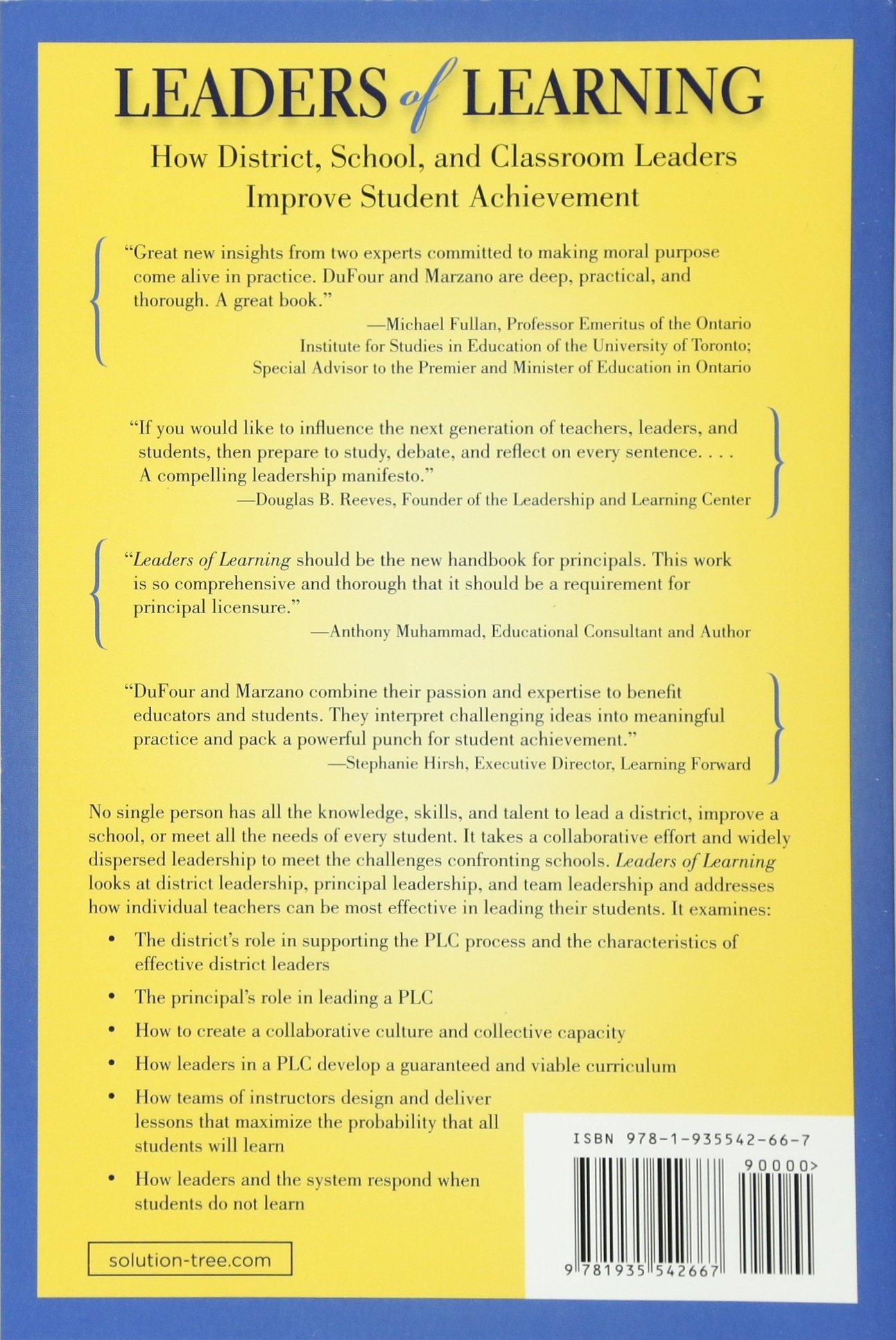
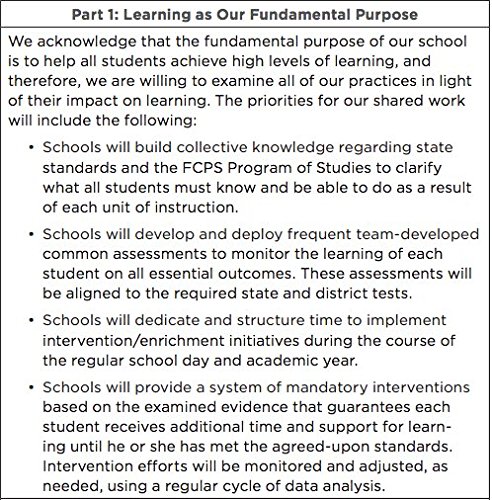
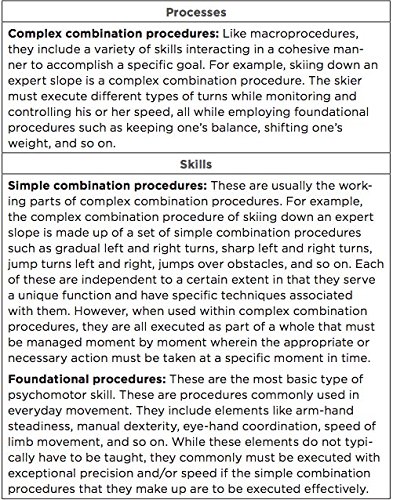
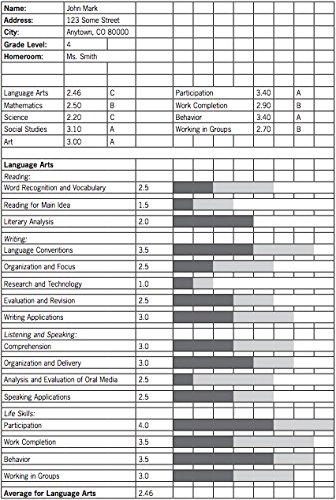
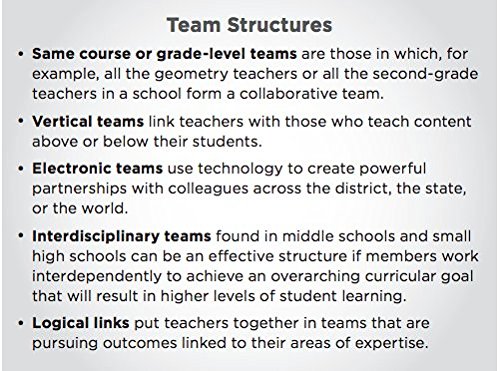
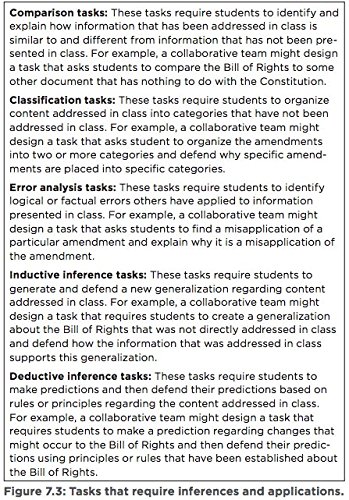

Leaders of Learning: How District, School, and Classroom Leaders Improve Student Achievement (Bringing the Professional Learning Community Process to Life)
D**S
Schooling Iceberg
This collaboration of DuFour and Marzano (DM) has resulted in a fine distillation of both their worlds. Richard DuFour is the leading advocate for Professional Learning Communities. Robert J. Marzano is a leading educational meta-analyst. The book puts in bold relief the weakness of the PLC movement.PLC's first and foremost claim is "...that the fundamental purpose of our school is that all students learn at high levels" (p.22). Sociologists of education would find that this claim flies in the face of the real purpose of school: the social control of children. Sociologists claim, depending on which theory is considered, that the purpose of schooling is to socialize children into becoming productive citizens of the state. DuFour and Marzano would benefit from reading Linda M. McNeil's Contradictions of Control: School Structure and School Knowledge (Critical Social Thought). The book describes the actual schooling that occurs.Writ large in this volume is the author's advocacy of a "guaranteed and viable curriculum (GVC)". The phrase is used 22 times. DM describes this curriculum on page 91. What a GVC misses entirely is the hidden curriculum, the truly powerful lessons learned by students. Certainly, students learn academic skills and knowledge over the course of 12 years in public school. However, a GVC represents only the tip of the curriculum iceberg. There is the 90% of the curriculum which lies below the surface; this curriculum is hidden.GVCs do not take into account the learning not prescribed in curriculum documents. These learnings are everything from using manners and polite behaviour to profoundly debilitating lessons of socioeconomic forces and cultures that are very slow to change, if they ever change. GVCs hold out the promise that students will learn at high levels, but totally ignore the hidden curriculum. GVCs ignore the huge undertow of schooling. I sincerely hope that DM's next volume takes into consideration the hidden curriculum.In this volume it has become crystal clear that what DM believe is collaboration is really only coerced teamwork. They state, "When educators understand the tangible work products that must be created as a result of their collaboration, they develop greater clarity regarding the nature of their work (p. 84)". DM make several assumptions about teachers work that require the deskilling of teachers. This deskilling is unacceptable to teachers.True collaboration is a voluntary effort between equals. There is no "must" in true collaboration. Instructional teams may certainly be formed and directed to develop strategies to improve student learning, but it is directed work, not true collaboration. The authors would also benefit from reading The Responsibility Virus: How Control Freaks, Shrinking Violets--and the Rest of Us--Can Harness the Power of True Partnership.This pseudo-collaboration advocated by leaders in the PLC movement is a bit surprising since this was not the position of Richard DuFour in 1992. In Creating the New American School: A Principal's Guide to School Improvement (Transforming Schools) by Richard Dufour and Robert Eaker, a proto-PLC is developed. They state, "Encourage the collaborators, but do not attempt to force collaboration on those who are not interested (p.17)". We can have directed teacher teamwork to improve student learning or collaboration, but not both.This book is a great read for PLC aficionados. Just watch out for the schooling iceberg.Dr. John MerksTeacherRiverview High SchoolRiverviewNew BrunswikCanada
U**N
Leaders of Learning: Shifting your View Point
Those in education are in this field together, for the common goal-we want to help our students succeed and be the best they can be. Therefore, we must unite with common goals and approaches to make the most out of our collaborations (while still allowing room for differentiating instruction). DuFour gives advice on how to shift a common practice into something extraordinary.
L**N
Informative and Interesting
I will recommend this book to all educators looking to expand their knowledge. The book target an exciting mind. It is a good edition.
G**R
Excellent
For advocates of professional learning communities, Marzano and DuFour do a great job overviewing the strategic value of PLC's, what principals and district leaders and the Superintendent needs to do to insure the are implemented and evolving in your district.The book is coupled with ample research and is well written.....a must for a curricumlum leaders and Superintendent's library.
E**T
it is an excellent introduction and explanation of the PLC process
I use this book with my graduate students... it is an excellent introduction and explanation of the PLC process.. etc.ET
K**G
This really says it all!
This book is one I'd highly recommend to anyone trying to improve achievement at their school...it pulls together everything a school's leader (and his/her team) should consider when examining their system. It's nice to see a consistent message coming from all the major researchers in the field!
J**R
Good book
Great info for a course
M**A
It is so inspirational and a great lens to view the rest of the book through
Start by reading ch.9 first. It is so inspirational and a great lens to view the rest of the book through. An absolute must-read for any educational leader.
K**T
Excellent Resource
DuFours remain a constant in Education.
M**2
Four Stars
Product came on time and as described in the description.
TrustPilot
1天前
2 周前